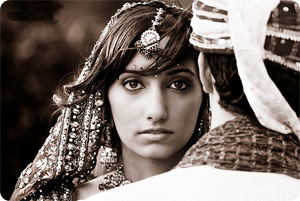Marriage Legalities in India

India is a land of many cultures and religions. So, it is important to remember the various legalities involved in marriages of different religion and community. India being a cosmopolitan country accepts personal laws of its citizen. As a result each citizen of India is entitled to have his own personal laws in the matter of marriage and divorce. In all the religions of India, marriage is considered to be a sacred ritual that is why this relationship is held in high regard in the Indian culture; however various legal implications are introduced in the marital regulations of the society, in order to overrule any discrepancy. In case you want to understand the basic marital legalities in India, here are few points you can refer to…
Basic Interpretation of Various Marriage Acts in India - It is important for everybody to know that all marriages should be registered to make it legal.
- There are different rules and regulations for different religions. Like there are Hindu Marriage Act, Muslim Marriage Act, and Christian Marriage Act and for the Parsee there is Parsee Marriage and Divorce Act.
- Hindus are governed by the Hindu Marriage Act, 1955, under which the bridegroom should be the age of 21 years and bride of 18 years, they both should be Hindus and should not be within the degree of prohibited relationship.
- Divorce under the Hindu Marriage Act 1955 can be obtained on the various grounds.
- Hindu Marriage is applicable also to the Buddhist, Jain or Sikh religions and the person who is not a Muslim Christian, Parsi or Jew, and who is not governed by any other law.
- Muslims also have their own personal law, which states that Nikah or marriage is a contract and may be permanent or temporary and permits a man four wives if he treats all of them equally.
- A Muslim marriage requires proposal (Ijab) from one party and acceptance (Qubul) from the other to legally solemnize a marriage. Marriage without free consent would be void and also, if it is proved that such consent has been obtained by means of coercion, fraud or undue influence.
- Similarly for the Parsees there is a Parsee Marriage & Divorce Act, 1936, which governs their provisions of their marriage and divorce.
- By the Parsi Marriage and Divorce (Amendment) Act, 1988 (5 of 1988), the extent of certain provisions of the Parsi Marriage and Divorce Act, 1936 have been widened so as to bring them in line with the Hindu Marriage Act, 1955. Bigamy or Polygamy is punishable offence in Parsi Religion.
- For Indian Christian there is an Indian Christian Marriage Act 1889. The Christian marriage in India can be solemnized by any person or bishop who is either a clergyman of the Church of Scotland, any licensed minister of the religion or any licensed registrar. A person who has received episcopal ordination can also solemnize a Christian marriage.
- Persons of any religion who get married under the Special Marriage Act, 1954 are governed by the said act. Those who get married under a civil marriage or no formal marriage ceremony marry under the Special Marriage Act, 1954; do not need to take any further legal steps because in this case registration is itself the marriage ceremony.
| |
Other Categories
Arya Samaj Wedding
Christian Wedding Ceremony
Hindu Marriage Act
Muslim Wedding Ceremony
Indian Wedding Facts
Kanyadaan
Marriage Legalities in India
Sikh Wedding Rituals
Parsi Wedding Ceremony
Special Marriage Act
Muslim Marriage Act
Marriages in Different Religions
Famous Indian Weddings
Seven Vows Of Marriage
Indian Baraat
Wedding Photography
Main Categories
Indian Weddings
Wedding Decoration Tips
Pre Wedding Functions
Post Wedding Functions
Hindu Marriages
Indian Wedding Day Functions
Muslim Wedding Ceremony
Malayalee Wedding Ceremony
Kannada Wedding Ceremony
Kashmiri Wedding Ceremony
Oriya Wedding Ceremony
Tamil Wedding Ceremony
Bengali Wedding Ceremony
Punjabi Wedding Ceremony
Jain Wedding Ceremony
Maithil Brahmin Wedding Ceremony
Sindhi Wedding Ceremony
Telugu Wedding Ceremony
Maharashtrian Wedding Ceremony
Assamese Wedding Ceremony
Jewish Wedding Ceremony
Marwari Wedding Ceremony
Buddhist Wedding Ceremony
Gujarati Wedding Ceremony
Planning Your Honeymoon
Indian Bride
Indian Groom
Indian Wedding Features
Marriage Problems
Indian Wedding Preparation
Indian Wedding Planners
Post Wedding Preparation
Main Day Function
|

